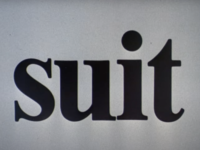Based on William Shakespeare’s most auto-suggestive play, The Tempest, the Peter Greenaway-directed Prospero’s Books is a gorgeously textured spell of a film.
Greenaway remains a stupendously eccentric, highly original, and mildly perverse auteur (The Cook, the Thief, His Wife and Her Lover; A Zed and Two Noughts; Nightwatching) In his hands, Prospero’s Books is predominantly concerned with the magical process.
Constructed into chapters dictated by Prospero’s – the ostracized magician of the title – occult library, the film is unmatched for visual audacity and sophisticated narration. John Gielgud’s Prospero conducts the cast of characters in a sonorously arcane voice – in a role he was aged for.
The books themselves are visceral in their properties: The ‘Book of Mirrors’ has for pages species of mirrors fashioned from an exotic miscellany of materials, while pages from the ‘Book of Water’ are wet and flowing. The ‘Book of Anatomy’ is, of course, drenched in blood and plasma, featuring samples of its content-matter on the page. The ‘Book of the Dead’ writes itself, keeping the tally up to date.
Prospero’s Books is aromatic and acrid, layered in naked bodies and superimposed texts and parallel visuals. In fact, so rich is Peter Greenaway’s visual information that one barely needs the Bard’s eloquently punning dialogue to appreciate its chronologic mists.
Breath-taking, sensual, decaying – and just a little dangerous.
[First published in Muse magazine.]
- How the Pixies Changed Everything With ‘Surfer Rosa’ - July 12, 2023
- Frank Zappa – ‘Funky Nothingness’ (2023) - June 30, 2023
- How Jim White’s ‘Wrong-Eyed Jesus!’ Changed My Mind About Country Music - June 14, 2023




